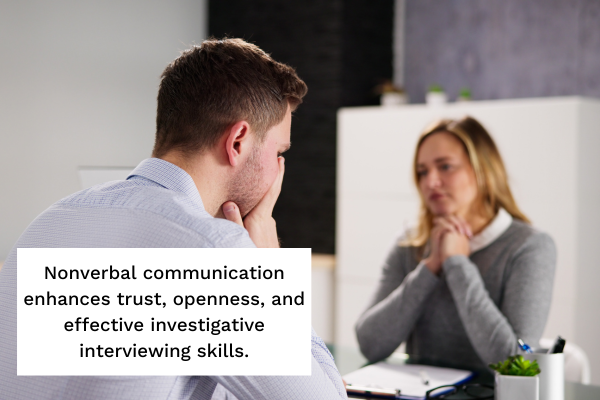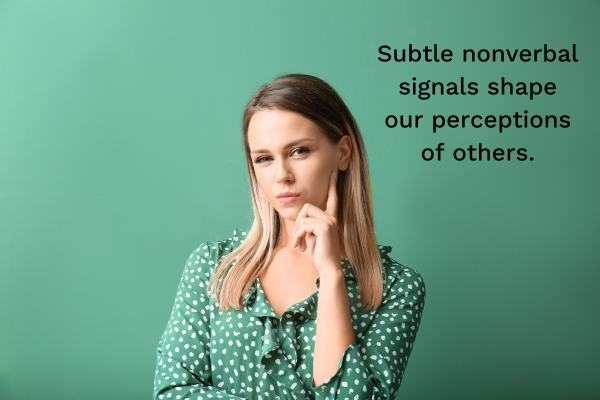Investigative Interviewing: How To Improve Your Nonverbal Communication

Nonverbal communication is significant because it reveals how we feel (sometimes despite what we say). It also provides us with information about how other people feel about us. Most of us are not formally trained in nonverbal communication but life experiences teach us many positive and negative non-verbal cues informally.

For example, have you ever met someone and felt like you didn’t like them but couldn’t pinpoint why? Maybe they were saying all the right things, but they threw off negative non-verbal cues that you picked up. So, you stepped away from the experience feeling like you didn’t like the person. You probably know more than you think you do about nonverbal communication from both positive and negative life experiences, and putting the pieces together will help you become a better communicator and interviewer.
Here are five ways to improve your non-verbal communication during an investigative interview to build a better rapport with the interviewee.
1. Release tension in the forehead and brow. When we relax tension in our faces, the rest of the body follows in relaxation. A relaxed face, with lowered eyebrows, conveys calm and trustworthiness. Practice this before your interviewee arrives and your relaxed body language will help your interviewee relax as well.
2. Palms up. When we talk we often gesture with our hands. Palms-up gestures are often associated with transparency and sincerity. They signal that you’re being open and forthright in your responses, which can help build trust with the interviewee. This gesture also encourages the other person to engage in conversation, indicating you’re open to their ideas or questions.
3. Don’t overdo it on eye contact. Many people think constant eye contact is important to communicate effectively, but it can be very intimidating for an interviewee. Make good eye contact but don’t stare. Make eye contact for shorter periods releasing your gaze occasionally. Gaze at the lower half of an interviewee’s face sometimes as opposed to looking him or her right in the eye. (Also, did you know that pathological liars seldom break eye contact? It’s because they want to observe whether or not you are buying their stories.)
4. Nod while listening. Nodding shows you are actively engaged and acknowledging the speaker. It conveys understanding without needing to interrupt, allowing the speaker to feel heard without breaking their flow. A pleasant expression and one or two nods will send the message that you are actively listening.
5. Mirror the other person subtly. Reflecting on the other’s body language can build rapport and connection. Mirroring can enhance feelings of trust and cooperation, as it gives the impression that you are in sync with the other person, which makes them more likely to open up and feel safe.
Improving your body language as an investigative interviewer is crucial for building rapport, encouraging openness, and maintaining control over the conversation. By refining your nonverbal communication, you can foster a more open, trusting environment that encourages the interviewee to provide more detailed responses.
Learn more about investigative interviewing in our Effective Interviewing & Evidence Collection Course. We can bring this course to your site, or you can join us for a public course Pre-Summit.



